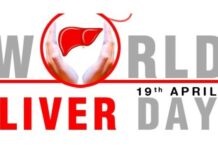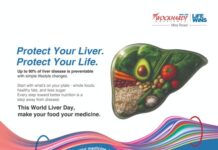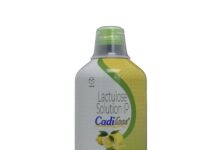New Delhi, April 09, 2015
Many Australians may be using (and spending money on) a daily prescription heartburn and reflux medicine that may not be necessary.
Many Australians may be using (and spending money on) a daily prescription heartburn and reflux medicine that may not be necessary.
Proton pump inhibitors (PPIs) are most commonly prescribed to relieve symptoms caused by gastro-oesophageal reflux disease (GORD, or more commonly called ‘reflux’), and work by reducing the amount of stomach acid produced. Their use and cost continues to increase in Australia, with over 19 million prescriptions written in the 2013–14 financial year. Esomeprazole (a popular PPI) was the fourth most costly medicine to the government, with nearly 7 million prescriptions subsidised at a cost of $200 million in the last financial year.
Reflux is the movement of stomach contents up into your oesophagus (food pipe). As these contents are acidic, they can irritate the oesophagus and cause symptoms such as heartburn (a burning sensation that rises from the chest towards your throat). While reflux-related symptoms such as heartburn are very common—up to 1 in 5 Australian adults experience heartburn at least once a week—for some people they can be more frequent or severe, or cause complications. These people may have visited their GP and been prescribed a PPI.
NPS MedicineWise Clinical Adviser Dr Jeannie Yoo says, “While PPIs are very effective medicines, reflux-related symptoms vary and it may not be necessary to take them at a high dose, on a regular basis, or in some people, to be taking them at all. Taking the right medicines at the right dose, and only for as long as you need them is an important element of being medicinewise. It is good to review whether you need to be taking acid reducing medicines regularly with your GP.”
“Although they can be helpful and are generally safe PPIs are not harmless and, like all medicines, have potential side effects. There is also an increasing awareness of and concern about the risks associated with long-term use of these medicines.”
The most common side effects that occur with PPIs include headaches, nausea, vomiting and diarrhoea. PPI use has also been associated with serious, though rare side effects such as bone fractures, pneumonia, gut infections, inflammation of the kidneys, or certain vitamin and mineral deficiencies.
Dr Yoo advises Australians who are on a medicine for reflux to talk to their doctor.
“Remember that there are lifestyle changes you can make which can help with symptoms of reflux, such as losing weight, reducing alcohol and quitting smoking. Certain foods and drinks, such as fatty or spicy foods, chocolate, and caffeinated or carbonated drinks, as well as some medicines, can also trigger symptoms,” says Dr Yoo.
“By using lifestyle changes, and with the help of your health professional, it may be possible to gradually reduce the use of your PPI.”
More information about reviewing the use of this prescription medicine for heartburn and reflux is available here.
An infographic about proton pump inhibitors is available here.
CCI Newswire
CCI Newswire





















